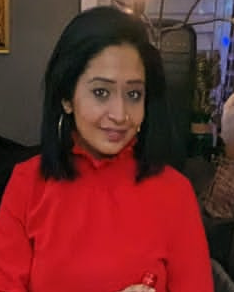You Know You’re Qualified — So Why Do Interviews Feel So Awkward?
You’ve led teams through major acquisitions. You’ve navigated budget crises that would have sunk lesser professionals. You’ve consistently hit targets that others deemed impossible. But the second someone asks, “Tell me about yourself?” your brain short-circuits, and you find yourself stumbling through a response that sounds nothing like the confident leader you are every other day of the week.
If this resonates, you’re not alone, and more importantly, you’re not broken. Interviewing is a distinct skill set that has virtually nothing to do with your ability to excel in the role you’re pursuing. The awkwardness you feel isn’t a reflection of your professional worth — it’s simply evidence that you haven’t had to practice this particular performance in a while.
For senior professionals who’ve built careers through internal growth rather than external job hopping, the interview process can feel like speaking a foreign language. You know you’re fluent in leadership, strategy, and execution, but translating that fluency into interview-speak requires a different kind of communication muscle memory.
The challenge isn’t your qualifications. It’s finding the right tone that showcases your expertise without coming across as arrogant, demonstrates your personality without seeming unprofessional, and conveys confidence without appearing overconfident. This delicate balance becomes even more complex when you’re competing against candidates who interview professionally every few years and have refined their presentation through repeated practice.
Pain Point #1: “I Haven’t Interviewed in Years — I Just Got Promoted”
The internal promotion track creates a unique disadvantage when you finally decide to explore external opportunities. While your peers who’ve changed companies multiple times have honed their interview skills through necessity, you’ve been focused on delivering results within your organization’s culture and communication norms.
This isn’t a weakness — it’s actually a sign of success and loyalty that many employers value. However, it does mean you’re approaching interviews without the recent practice that makes the process feel natural and fluid.
Reframing Internal Success for External Audiences
Here’s the mindset shift that changes everything: you’ve been selling yourself for years — just inside the building. Every project proposal, budget request, team presentation, and strategic recommendation has been an exercise in persuasion and value demonstration. The core skills are identical; only the audience has changed.
The key difference is context. Internal stakeholders already understand your company’s challenges, industry dynamics, and organizational structure. External interviewers need more background and clearer connections between your experiences and their current needs.
During interview coaching sessions, I help clients recognize that they’re already master communicators — they just need to adjust their context-setting and explanation depth for audiences who don’t share their organizational knowledge.
Pain Point #2: “I’m Great in My Role, But I’m Bad at Interviews”
This confidence gap between doing the job and talking about the job is incredibly common among high-performing professionals. You can run a P&L, but struggle to articulate your leadership philosophy. You can navigate complex stakeholder relationships, but fumble when asked about conflict resolution.
The disconnect happens because daily work performance and interview performance require different communication skills. In your role, results speak for themselves. In interviews, you must become the narrator of your own success story.
Bridging the Performance-Communication Gap
Most of my clients don’t need help becoming better professionals — they need help sounding like the accomplished leaders they already are. This distinction is crucial because it shifts the focus from capability development to communication optimization.
The solution involves three key adjustments:
Translation Skills: Converting internal jargon and company-specific context into universally understandable language that demonstrates transferable value.
Story Architecture: Restructuring your experiences into compelling narratives that highlight decision-making, leadership, and business impact rather than just task completion.
Confidence Calibration: Learning to own your achievements without minimizing them or overselling them, finding the tone that conveys competence without arrogance.
These aren’t personality changes — they’re presentation adjustments that allow your authentic professional self to shine through clearly.
Pain Point #3: “I Don’t Know What They’re Actually Looking For”
Senior professionals often fall into the trap of over-explaining, assuming interviewers understand industry context, organizational dynamics, or the complexity of the challenges they’ve navigated. This assumption leads to answers that showcase expertise but miss the mark on relevance.
The fundamental issue is perspective mismatch. You’re thinking like an internal expert; they’re listening like external evaluators trying to solve specific current problems.
Strategic Context Setting for Interview Success
Effective interview communication requires constant translation between your experience and their needs. This doesn’t mean fabricating relevance where none exists — it means clearly articulating the connections that might not be immediately obvious to someone outside your industry or organization.
The insight that transforms senior-level interviews is this: you need to frame your experience in a way that solves their current problem, not just demonstrates your past success. This requires understanding not just what you’ve accomplished, but why those accomplishments matter to their specific situation.
During interview coaching, we practice taking your most impressive achievements and reverse-engineering them through the lens of the role you’re pursuing. What skills did you use? What challenges did you overcome? How do those same skills and problem-solving approaches apply to their current business needs?
This strategic reframing allows you to maintain authenticity while demonstrating clear value alignment.
Pain Point #4: “I’m Too Robotic… Or Too Casual… I Don’t Know Anymore”
The tone calibration struggle is real, especially for professionals who’ve spent years mastering the communication style of one organizational culture. You’ve finally figured out how to be appropriately professional in your current environment, and now you’re second-guessing everything in a new context.
This uncertainty often leads to overthinking every interaction, which paradoxically makes you sound less natural than you actually are. You end up either too formal (and losing your personality) or too casual (and undermining your gravitas).
The Art of Strategic Mirroring
The solution isn’t finding one “perfect” interview tone — it’s developing the flexibility to match the energy and communication style of your interviewer while maintaining your authentic professional self.
Here’s the mirroring principle that guides successful interview communication: if they’re telling stories, tell stories. If they’re keeping things structured and formal, keep your responses tight and professional. If they’re asking follow-up questions and diving deep, lean into detailed explanations. If they’re moving quickly through topics, be more concise.
This isn’t about pretending to be someone you’re not — it’s about matching energy without losing your authenticity. Think of it as professional code-switching, similar to how you might adjust your communication style when presenting to the board versus brainstorming with your team.
The key is conscious calibration rather than personality transformation. You’re still you; you’re just adapting your presentation style to create the most effective communication dynamic with each specific interviewer.
Pain Point #5: “What If They Think I’m Too Old, Too Expensive, or Too Much?”
This fear haunts many senior professionals, particularly those who’ve been out of the job market for extended periods. The concern about age discrimination, salary expectations, or being perceived as overqualified can create a defensive energy that undermines interview performance.
While these concerns aren’t entirely unfounded — bias does exist in hiring processes — approaching interviews from a position of insecurity often becomes a self-fulfilling prophecy.
Flipping the Evaluation Dynamic
Here’s the perspective shift that restores your confidence: your job is to screen them just as much as they’re screening you. You’re not a supplicant hoping they’ll overlook your “flaws” — you’re an experienced professional evaluating whether this opportunity aligns with your career goals and values.
This mindset adjustment accomplishes several important things:
Energy Shift: You approach conversations with curiosity rather than desperation, which is immediately apparent in your body language and vocal tone.
Question Quality: You ask more strategic questions because you’re genuinely evaluating fit rather than just trying to impress.
Negotiation Position: You’re more likely to negotiate from strength because you see yourself as bringing value rather than seeking charity.
Cultural Assessment: You can better evaluate whether the organization’s values and communication style align with your preferences and working style.
Remember: if they think you’re “too much,” you probably don’t want to work there anyway. The right opportunity will value your experience, expertise, and the perspective that comes with senior-level accomplishments.
Core Strategy: The Right Story Told the Right Way
Even with proper mindset and tone calibration, senior professionals often struggle with storytelling because they assume their achievements speak for themselves. In your current role, your track record provides context. In interviews, you must create that context through strategic narrative construction.
Adaptive Storytelling for Maximum Impact
The most effective interview approach involves developing a portfolio of core stories that can be adapted for different audiences and situations. The facts remain the same; the emphasis and framing adjust based on what each specific interviewer needs to hear.
For example, a story about leading a organizational restructuring might emphasize:
- Change management skills for a transformation-focused role
- Communication strategy for a stakeholder-heavy position
- Financial impact for a results-oriented culture
- Team leadership for a people-management opportunity
This isn’t manipulation — it’s strategic communication that helps interviewers understand how your experience translates to their current challenges.
The Three-Layer Story Structure
Effective senior-level interview stories operate on three levels:
Surface Layer: What happened — the basic facts of the situation, your role, and the outcome.
Skills Layer: How you approached the challenge — the specific capabilities, decision-making process, and leadership strategies you employed.
Relevance Layer: Why it matters to them — the direct connections between your experience and their current business needs or cultural priorities.
Most professionals tell surface-layer stories and assume interviewers will infer the deeper implications. Senior-level candidates must explicitly connect all three layers to demonstrate both competence and strategic thinking.
The Communication Confidence Factor
Confidence in senior-level interviews comes from a different source than early-career confidence. You’re not trying to convince them you have potential — you’re demonstrating that you have proven capabilities and strategic perspective.
Authentic Authority Without Arrogance
The challenge is communicating your accomplishments and expertise in a way that builds credibility without triggering negative reactions about ego or cultural fit. This balance is particularly delicate for senior professionals who’ve spent years making high-stakes decisions and may be used to more direct communication styles.
The solution involves three key calibrations:
Credit Distribution: Acknowledging team contributions while clearly owning your leadership role and decision-making responsibility.
Context Appreciation: Demonstrating awareness of external factors that contributed to success while highlighting your specific strategic contributions.
Continuous Learning: Showing that experience has made you more strategic and decisive, not more rigid or closed-minded.
This approach positions you as someone who brings both expertise and wisdom — a professional who can execute at the highest level while remaining coachable and collaborative.
Strategic Interview Preparation for Senior Professionals
Effective interview preparation for experienced professionals requires a different approach than standard coaching. You don’t need to practice basic interviewing skills — you need to optimize your communication strategy for maximum relevance and impact.
The Senior Professional’s Interview Toolkit
Industry Translation: Converting your sector-specific expertise into principles and capabilities that apply across industries and organizational contexts.
Scale Communication: Articulating the scope and complexity of your responsibilities in ways that demonstrate leadership capacity without overwhelming interviewers with unnecessary detail.
Vision Articulation: Clearly communicating your strategic perspective and long-term thinking while staying grounded in practical execution capabilities.
Cultural Intelligence: Reading organizational dynamics quickly and adjusting your communication style to align with their cultural norms and values.
Question Strategy: Developing thoughtful questions that demonstrate business acumen while gathering the information you need to evaluate the opportunity.
These advanced skills build on your existing professional capabilities rather than replacing them, allowing you to interview at the level your career achievements deserve.
Beyond the Interview: Strategic Career Positioning
For senior professionals, individual interview performance is just one component of broader career strategy. The tone and positioning you develop for interviews should align with your overall professional brand and career trajectory goals.
Long-term Perspective on Interview Skills
The communication skills you develop through strategic interview coaching serve you far beyond immediate job search needs. They enhance your ability to:
- Present strategic initiatives to executive leadership
- Communicate with board members and external stakeholders
- Navigate internal promotion conversations
- Represent your organization at industry events
- Mentor emerging leaders within your field
This broader application makes interview coaching particularly valuable for senior professionals — you’re not just preparing for one conversation, but elevating your overall executive communication capabilities.
Ready to Interview at Your Level?
If you’ve been struggling to translate your professional accomplishments into compelling interview conversations, or if you find yourself second-guessing your communication style in high-stakes situations, you’re experiencing a skills gap, not a capability gap.
The challenge isn’t becoming better at your job — it’s becoming better at talking about your job in ways that resonate with external audiences who don’t already know your value.
Professional interview coaching for senior professionals focuses on optimization rather than fundamental development. We work together to refine your storytelling, calibrate your tone, and develop the strategic communication skills that allow your authentic expertise to shine through clearly.
This isn’t about changing who you are professionally — it’s about letting the accomplished leader you already are come through in every conversation. When you can communicate your value as clearly as you deliver it, interviews transform from awkward performances into strategic conversations between professionals.
Your experience speaks for itself in your current role. With the right communication strategy, it will speak just as powerfully to your next opportunity.
Ready to Stop Letting Interviews Be Your Bottleneck?
Ready to flip the script on your job search and start interviewing with the confidence your experience deserves? Let’s talk about what taking your interview power back actually looks like for your specific leadership level and career goals.
Book a free strategy call and discover how Eunioa can help you navigate your next chapter with clarity and confidence.
Visit: https://eunioa.io/career/
Connect with us on LinkedIn: www.linkedin.com/company/eunioa
Don’t let interview anxiety and job search isolation derail your career goals. Your next executive opportunity is waiting, and with the right communication strategy support, you’ll land it faster than you think.






